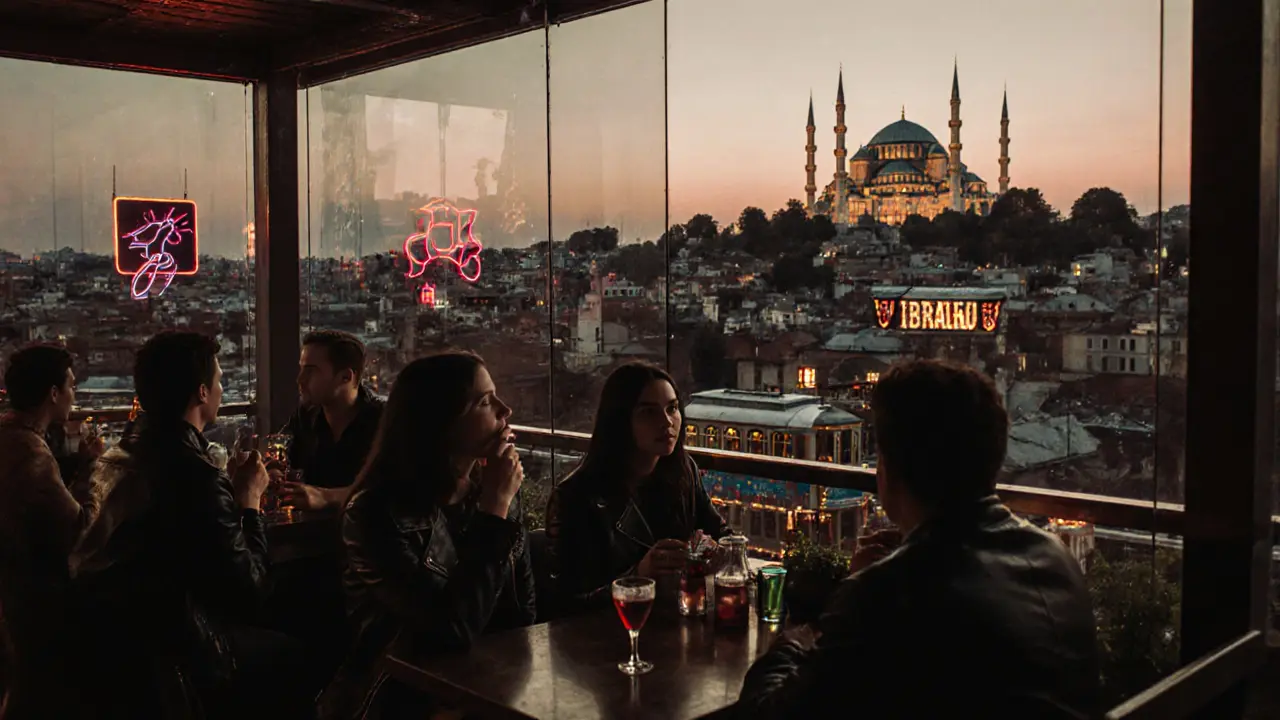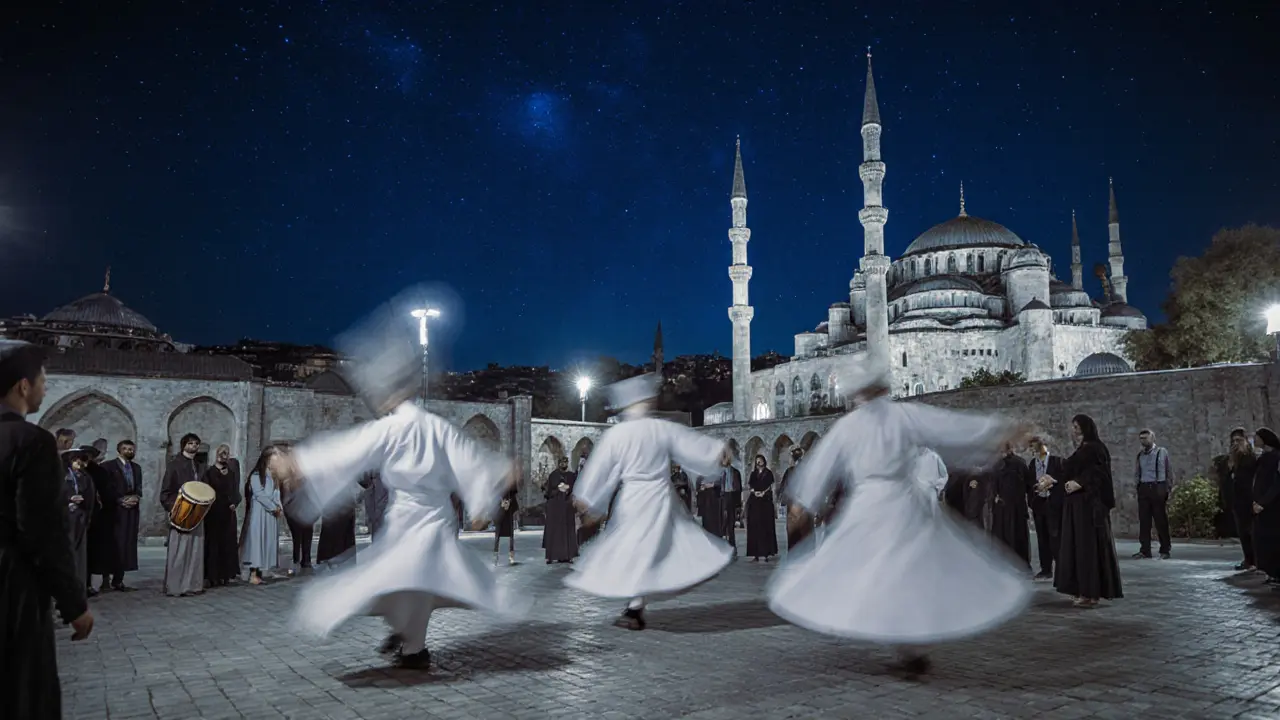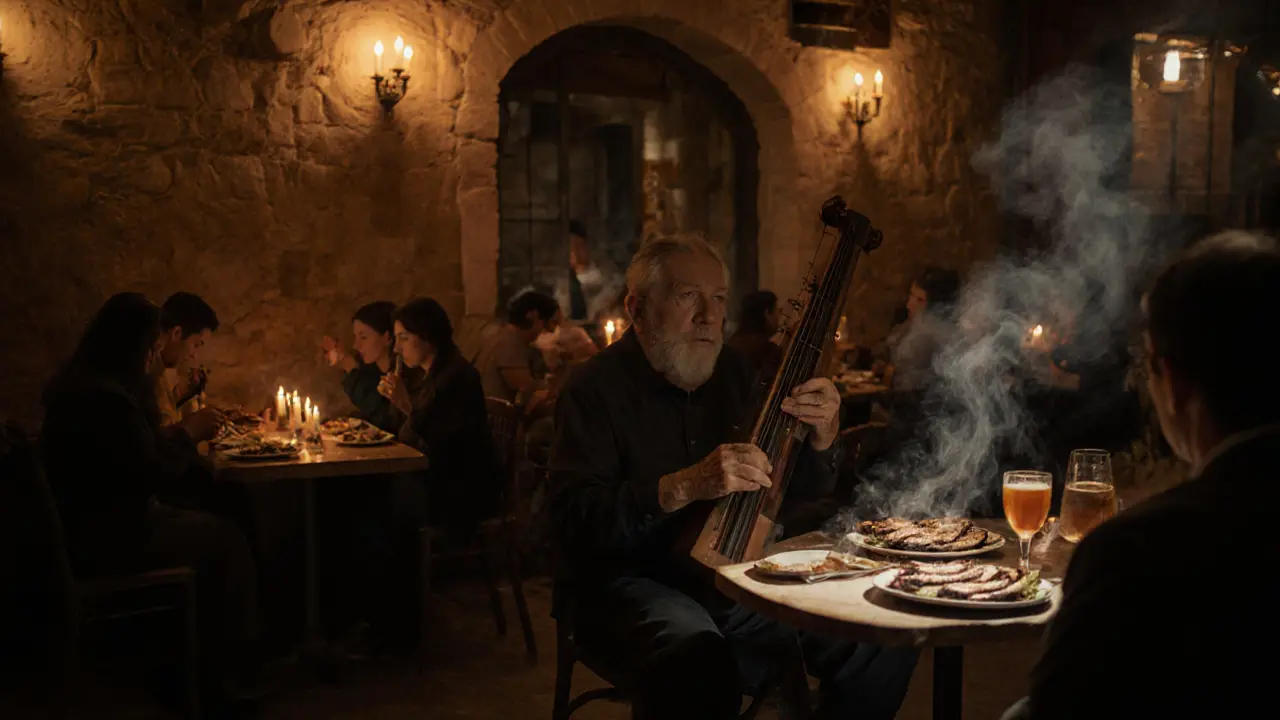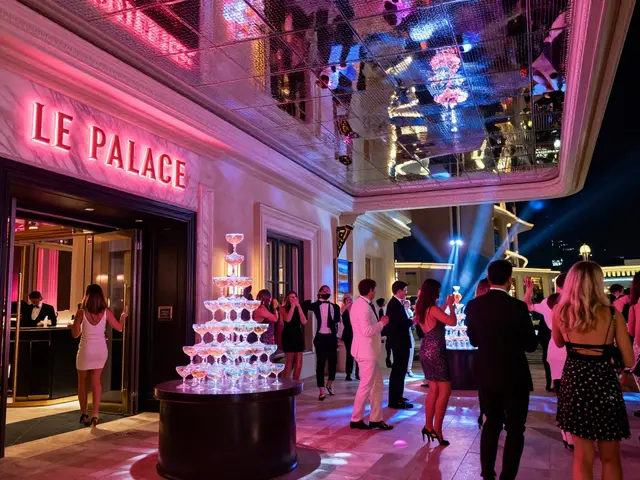When the sun sets over the Bosphorus, Istanbul doesn’t sleep-it transforms. One minute you’re sipping tea in a centuries-old çay bahçesi, the next you’re dancing to live ney music under neon lights in a hidden basement club. This city doesn’t choose between old and new. It weaves them together, night after night.
Where the Past Still Speaks After Midnight
Head to the narrow alleys of Kadıköy on the Asian side, and you’ll find traditional Turkish nightlife still alive. Not the kind with DJs and bottle service, but the kind where an old man plays the bağlama in a dimly lit meyhane, and the owner brings you a plate of haydari and a glass of raki with a wink. These places don’t advertise. You find them by following the smell of grilled sardines and the sound of laughter echoing off stone walls.
At Çiya Sofrası in Kadıköy, the kitchen stays open until 2 a.m., serving mezes that have been passed down for generations. Locals sit shoulder-to-shoulder, sharing plates, arguing about football, and singing along to old Turkish pop songs. No one checks their phone. No one takes a photo for Instagram. This isn’t performance. It’s life.
Even in the heart of Sultanahmet, where tourists flock by day, you’ll find quiet courtyards where Sufi whirling dervishes perform at night-just as they have since the 13th century. These aren’t tourist shows. They’re spiritual gatherings, open to anyone who sits quietly and listens. The drums, the chants, the spinning robes-it feels like time folded in on itself.
The Modern Pulse: Beyoğlu and Karaköy
Walk up İstiklal Caddesi after 10 p.m., and the energy shifts. The tram still clanks along, but now it’s surrounded by people in leather jackets, holding craft cocktails and debating which rooftop bar has the best view. Beyoğlu is where Istanbul’s youth live, work, and play. It’s loud, chaotic, and electric.
Bars like Istanbul nightlife hotspot Bar 66 don’t just serve drinks-they serve atmosphere. Vinyl spins on a turntable, the walls are covered in local art, and the bartender knows your name by the third visit. There’s no cover charge. No velvet rope. Just a place where musicians, writers, and expats mix like ingredients in a well-shaken cocktail.
Down in Karaköy, the old warehouses have become design-led lounges and underground clubs. Reina and Klub draw international DJs, but even here, the Turkish influence is unmistakable. A set might start with electronic beats, then shift into a remix of a 1970s arabesque hit. The crowd doesn’t flinch. They dance harder.
On weekends, you’ll see Turkish teenagers in designer sneakers dancing next to retired professors in wool coats. No one questions it. This is Istanbul’s rhythm-old and young, local and foreign, sacred and wild-all sharing the same street.

Hidden Gems and Secret Spots
Most guidebooks won’t tell you about the rooftop bar above a bookshop in Cihangir. Or the jazz club tucked behind a laundry mat in Nişantaşı. These places don’t have websites. You need a local to point you there.
One such spot is La Vie in Cihangir. It’s a converted 1920s apartment with mismatched chairs, a tiny kitchen where the owner makes homemade rakı infusions, and a balcony that overlooks the Golden Horn. The music? Jazz standards played by a trio of Turkish musicians who’ve been performing here since the 1990s. You pay with cash. No cards. No reservations. Just show up.
Then there’s the Boğaziçi Jazz Club in Bebek. It’s not flashy. No LED screens. No bottle service. Just a small stage, a few tables, and a sound system that makes every note feel like it’s vibrating in your chest. The crowd? Mostly academics, jazz lovers, and expats who’ve lived here long enough to know where to find real music.

Drinks That Tell Stories
What you drink says a lot about where you are in Istanbul. In a meyhane, it’s raki-clear, anise-flavored, served with ice and water. It turns milky white when you add water. It’s not just a drink. It’s a ritual. You sip slowly. You eat. You talk. You stay until the last plate is cleared.
In Beyoğlu, it’s craft beer. Istanbul has over 80 microbreweries now. İstanbul Craft Beer makes a hoppy lager infused with black mulberry. Aslan brews a stout with carob, a fruit used in Ottoman desserts. These aren’t gimmicks. They’re a nod to local ingredients, rediscovered.
And then there’s the tea. Always tea. Even at 2 a.m., you’ll find a man behind a small cart on the Galata Bridge, pouring tea from a tall, narrow pot into tiny glasses. He doesn’t speak English. He doesn’t need to. You hand him a lira. He hands you warmth.
When the Night Ends
Most nights in Istanbul end the same way: with a walk home under the glow of streetlights, the call to prayer echoing faintly from a nearby minaret. The city doesn’t shut down. It just slows down. The last taxi driver listens to old Turkish rock. The night watchman at the Grand Bazaar sips tea and watches the stars.
There’s no club that closes at 4 a.m. and empties out. People linger. They talk. They laugh. They don’t rush. Because in Istanbul, night isn’t just a time of day. It’s a state of being.
Whether you’re dancing to a modern beat or listening to a 500-year-old Sufi chant, you’re part of the same story. The city doesn’t choose between tradition and modernity. It lets them live together. And that’s why Istanbul’s nightlife doesn’t just entertain-it stays with you.
Is Istanbul nightlife safe for tourists?
Yes, Istanbul’s nightlife is generally safe for tourists, especially in popular areas like Beyoğlu, Karaköy, and Kadıköy. The streets are well-lit, and police patrols are common on weekends. Avoid isolated alleys late at night, and don’t carry large amounts of cash. Pickpocketing is rare but can happen in crowded bars. Always use licensed taxis or ride-share apps like BiTaksi.
What’s the best night to experience Istanbul’s nightlife?
Friday and Saturday nights are the busiest, with the most clubs open and live music events. But if you want a more local, relaxed vibe, try Thursday or Sunday. Many meyhanes and jazz spots are quieter then, and you’ll get better service. Wednesday nights in Kadıköy are great for indie bands and small gigs.
Do I need to dress a certain way for Istanbul clubs?
No strict dress code, but it depends on the place. Upscale clubs like Reina or Klub expect smart casual-no flip-flops or shorts. For rooftop bars and jazz lounges, jeans and a nice shirt are fine. In traditional meyhanes, you can wear anything. Locals dress comfortably, even in fancy spots. Just avoid overly revealing clothes if you’re visiting conservative neighborhoods like Fatih or Üsküdar at night.
Can I find English-speaking staff in Istanbul nightlife spots?
In tourist-heavy areas like İstiklal Caddesi and Karaköy, yes-most bartenders and servers speak basic to fluent English. In smaller, local spots like Cihangir or Kadıköy’s hidden bars, staff might not speak much English, but they’ll still welcome you. A few Turkish phrases go a long way: "Teşekkür ederim" (thank you) and "Lütfen" (please) are appreciated.
Are there any all-night venues in Istanbul?
There are no official 24-hour clubs, but some places stay open until sunrise. Reina and Club 10 often run until 6 a.m. on weekends. Many meyhanes and 24-hour eateries like Çiya Sofrası or Yeni Lokanta serve food and drinks all night. If you’re still out at dawn, head to the Galata Bridge-locals gather there for breakfast kebabs and tea as the city wakes up.


